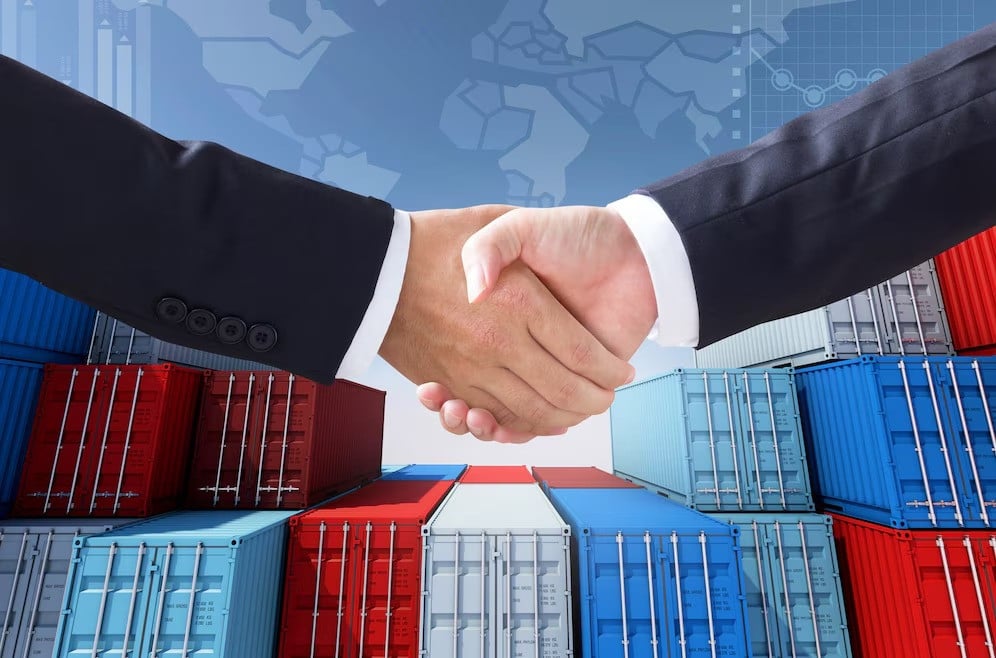ISLAMABAD:
In the ongoing escalated environment between India and Pakistan, the talk of free trade across borders can be termed unrealistic, anti-nationalist or even unpatriotic. In this article, I will argue that trade openness, trade connectivity and trade facilitation can serve as a deterrence against war, conflict and violence.
Openness comes with no or low tariffs; connectivity requires reliable physical infrastructure and facilitation demands simplification and efficiency of transactions.
India and Pakistan are part of a region, which is the least connected in the world. Before Trump’s tariffs, Nafta intra-trade was 55% of their total trade. Asean member countries’ intra-trade was 27% of their total trade. In comparison, intra-Saarc trade is 5% and intra-ECO trade is less than 1%.
Pakistan’s trade with its border countries, excluding China, is 4% and with China included it is 20%. In other words, 80% of our trade takes place with countries which are not located in this region. India’s trade patterns are also similar but more diverse; since its top export destinations are the US, the Netherlands and China.
The formal Indo-Pak trade reached $2.4 billion in 2014, declined significantly after 2018 and now it is less than $300 million. Our trade with Afghanistan is now recovering after registering a significant decline, which is a good sign, but it remains subject to the sustainability of peace. We now have a barter trade arrangement with Iran, though it is hardly utilised.
In recent years, instead of more trade, this region has witnessed air strikes, missile exchanges, terrorism and border incursions. This is the Bastiat prophecy: when goods don’t cross borders, soldiers (and terrorists) will. Now, we have seen that it has already happened.
This is the logical outcome of mutual mistrust in these countries, which has only grown. This has also led to an increase in smuggling across borders, particularly through Iran and Afghanistan. Closure of formal trade between Pakistan and India has diverted trade to the UAE, which has become a major partner for both countries. Practically, this serves as a conduit of bilateral trade, at increasing costs for our firms and consumers.
We need several policy adjustments on the domestic front to adapt to a free trade region. Pakistan’s tariff policy is structured on the cascading principle, which implies that unprocessed or semi-processed goods should face a lower tariff rate than finished goods. This may sound supportive for developing the local industry, however, the cascading tariff as a trade policy leads to the resource allocation diverted to the domestic markets rather than competing in the export market. It also reduces consumer welfare.
Pakistan’s tariff policy 2019-24 has maintained this principle, which has continued to suppress the export potential in lieu of revenue gains from customs tariffs at least in the short run. A uniform tariff rate which does not differentiate between the nature and use of goods is the hypothetical opposite to the cascading effect.
In the long run, we must change the current policy of cascading and pre-announce a single, uniform rate of 10% on all imports. In addition, the commitment to a market-based exchange rate, import relaxations, abolition of taxes on exports and withdrawal of additional customs duties and withholding taxes at the import level are necessary.
These domestic reforms will prepare Pakistan to better integrate with the region and beyond. Creation of supply chains will become possible, which will also compel firms from these countries to create partnerships.
Strong regional and trade connectivity can act as insurance against war, conflict and poverty. India and Pakistan together share the burden of 27% of the world’s poor. One out of every four poor inhabitants of the planet lives here.
Chinese investment in Pakistan through CPEC can be leveraged as a tool for enhancing regional connectivity. While all regional countries must cooperate, Pakistan should take the initiative, as dictated by our geography. If Pakistan takes the first step, China can leverage its regional and global influence to help restore normal business relationships across borders in this region.
Pakistan has the right to self-defence and it is the primary responsibility of the armed forces to guarantee territorial integrity of the country on all fronts.
Once the current tensions de-escalate, Pakistan should give a message to all neighbours to start conversation for free movement of people and goods across the region. In an environment where the US has already increased its tariffs on all countries by applying a 10% base tariff, it will also create opportunities for regions which are better connected.
These developments in global trade policy should also push us to consider adopting a different strategy by prioritising our economic interests. Economic transactions should not wait till complete normalisation. We should continue to hold our positions according to the international law while also engaging in talks for peaceful co-existence.
The writer is the Executive Director of PRIME, an independent economic policy think tank



